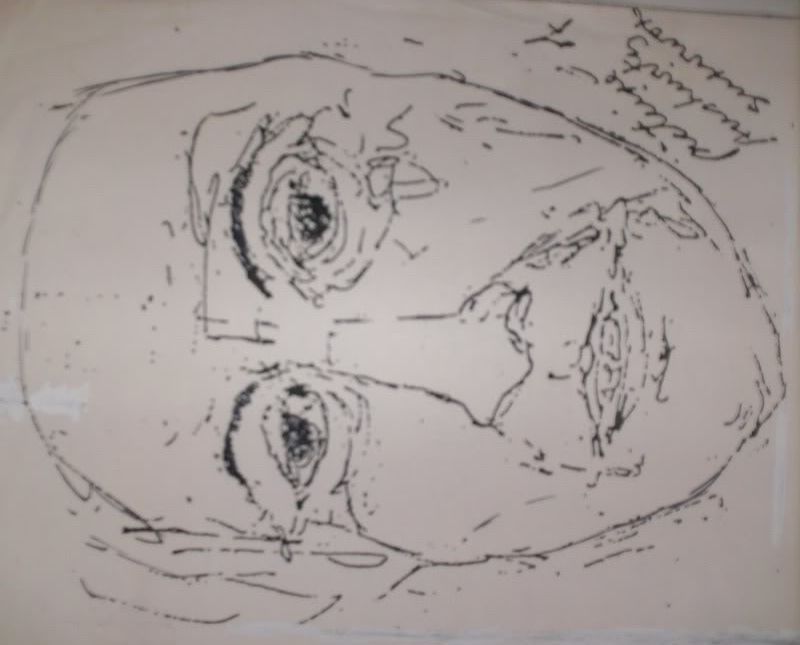
For all those
in war
and the danger of war,
refugees and dispossessed,
sufferers of famine, pestilence
and disaster
on this day.
Unknown Auschwitz Satyagraha
On April 21, 1985 I saw a public television program on the Holocaust. It consisted of the survivors meeting at the Holocaust Memorial in Israel, Yad Vashem I believe it is called, looking for those they had lost and telling the stories of what had happened to them. Most of the images were tight close-ups of faces saying things the eyes would not forget.
One woman said she had been a prisoner working in a typing pool in Auschwitz. The SS officer in charge told her when she arrived that she was allowed three mistakes a day or off to the ovens. They worked twelve hour shifts and typed thousands of reports all in quadruplicate. And only three mistakes a day.
Eventually, she was transferred to another job, another SS officer. He seemed to be a gentleman and she couldn't understand why he was in the SS. On the first day, he took her to a storeroom. It was in chaos. He asked, "Do you think you can clean this up?" Of course she said yes. He prohibited only one thing. She was not to open one certain door.
There came a time when she was working in the storeroom and heard screams. They were like the sounds "of a dying animal, being beaten to death, indescribable really." Naturally, they came from beyond the forbidden door. She had to open it. Behind the door was a set of stairs leading down. She descended and saw her gentleman SS officer beating a Polish worker with his belt in front of a group of other workers. She said, "The workers looked up and were struck as if they saw an angel. They had no idea women had worked above them. We had no idea there were men there below." The SS officer looked up too and saw her. He told her to get out but she didn't move. He came up the stairs and told her to go back but she didn't move. She said, "I'm not a hero but something happened. I grabbed hold of his sleeve and wouldn't let him go. He told me to leave but I looked into his eyes, for minutes, for a few seconds, for me it seemed like an eternity. And still I wouldn't let go of his arm. Finally he said, 'It's all right, go.' But I looked into his eyes for another eternity, holding his sleeve for dear life. Then he said, 'It's all right. I won't beat them anymore,' and I walked back up the stairs."
Later, she found out that the SS officer had been beating a worker to death with his belt every week, but from then on he stopped. Still later, just before a death march, the workers sent her a pair of high-topped boots and she believes it was only those boots that kept her alive through the march. She was an angel for them and those workers were angels for her.
Perhaps this story shows us what might have happened if Gandhi had met Hitler. Maybe he would have held Hitler's sleeve and searched his mad eyes into his madder soul until Hitler too said, "It's all right. I won't beat them anymore."
That evening there was a story on the Cambodian Holocaust on "Sixty Minutes" and the next morning on National Public Radio's Morning Edition a piece on the Armenian Holocaust.
The documentary I think was called "The Gathering," produced by Joel Levitch for Jason Films broadcast on April 21, 1985 on WGBH-TV Boston, MA.
Editorial Comment: I first published this piece online on August 1, 1997, although I wrote it the 80s, read it publicly in the early 90s, and produced a video version of the piece that was cablecast locally and exhibited in a museum show on courage in NY.
May we remember the example
of this woman and Dr King and Desmond Tutu and Gandhi
and Tolstoy and Thoreau and King Ashoka and
create peace on this day,
if only for a moment,
for a breath,
for ourselves.
Video version
No comments:
Post a Comment